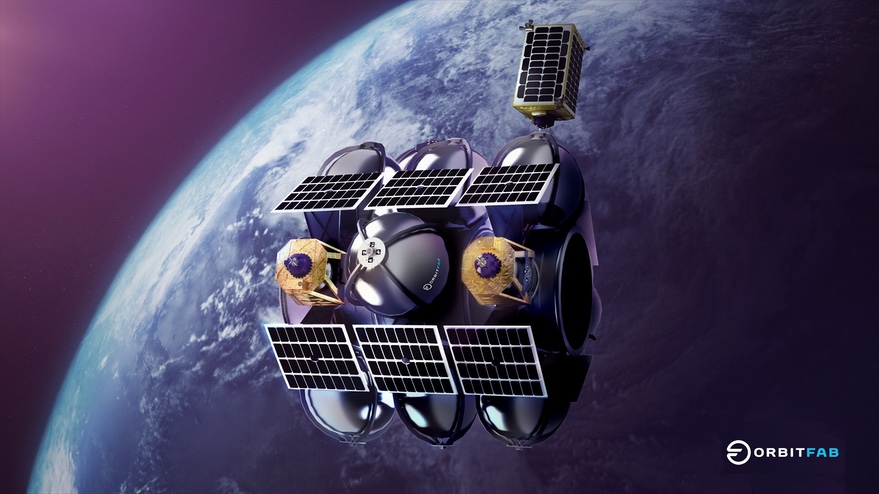LAS VEGAS — Orbit Fab, a startup developing infrastructure for in-space refueling of satellites, announced Oct. 25 it lined up a new investor to support those plans.
Orbit Fab said that 8090 Industries was a “new major investor” in the company, but did not disclose the size of the investment. The company had previously raised a total of $17 million, including more than $10 million in a September 2021 round that included Lockheed Martin and Northrop Grumman.
8090 Industries bills itself as an investment firm that backs “category-leading industrial giants of tomorrow.” The firm has previously funded startups working on alternative energy technologies, such as those seeking to “decarbonize” heavy industry and transportation, as well as batteries and aviation. It has not previously invested in a space company.
The firm says it partners with more than 20 “industrial leaders” to support its efforts, including the Ozmen family that founded Sierra Nevada Corporation and its space spinoff, Sierra Space.
“We see Orbit Fab as the critical layer of infrastructure for the new in-space economy,” Rayyan Islam, partner at 8090 Industries, said in a statement. “The industry’s future will be built around refueling services, and OrbitFab has a clear path to be the category-defining company to unlock the industrialization of space.”
“We are extremely impressed by the relationship that 8090 Industries has with the world’s leading industrial companies and the aerospace industry in particular. We are already leveraging these connections to help Orbit Fab in our next stage of growth,” Daniel Faber, chief executive and co-founder of Orbit Fab, said in the statement.
Orbit Fab has been developing technologies needed for in-space refueling of spacecraft. That includes the Rapidly Attachable Fluid Transfer Interface, a refueling port for satellites. It also launched last year its first small tanker, Tenzing, to test operations of future tankers for refueling satellites.
The company announced in August it would offer in-space hydrazine refueling at a price of $20 million, starting in 2025. It recently won a $13.3 million contract from the Defense Innovation Unit to supply hydrazine to a Defense Department spacecraft in geostationary orbit in 2025.
Refueling is emerging as a key initial market for the broader satellite servicing industry, given the benefits its offers in extending the life and increasing the maneuverability of satellites.
“Refueling is really a force multiplier,” Faber said in a talk Oct. 20 at the Global Satellite Servicing Forum by the satellite servicing industry group CONFERS. “Simply put, you can reduce costs and increase revenues.”
The cost reductions, he says, come from not having to launch a satellite with all the fuel it needs for its lifetime, instead launching a smaller, less expensive satellite that can be refueled. Revenue increases from a satellite being able to move more quickly to its operational orbit. “You can move faster because fuel is no longer your constraint. You don’t have to worry about taking the most efficient thruster system. You can take the thruster system that can take you to earning money the quickest.”
Refueling is also necessary for more ambitious satellite servicing efforts, such as repairing or upgrading satellites. “To be able to use servicing to its full potential for upgrades, in-space assembly, and those type of things, you need the fuel,” he said. “All the technologies are converging and they’re going to create opportunities that any single one of these things on its own wouldn’t enable.”
